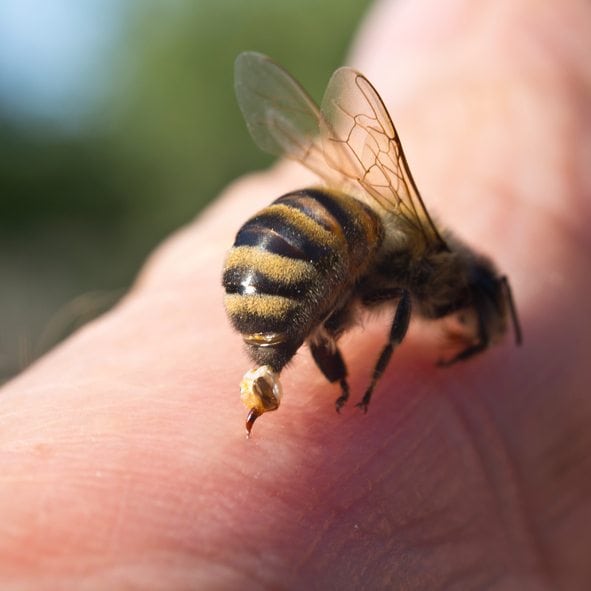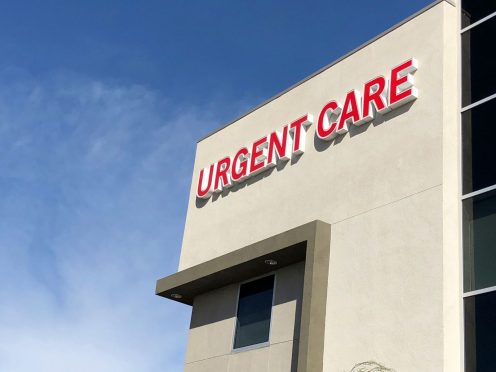For most people, a sting from a bee, wasp or hornet is just painful, but for some, it can be life-threatening. According to the Journal of Allergy and Clinical Immunology, three in 100 adults in the United States have life-threatening allergies to insect stings.
How Do I Know if I’m Allergic?
If you’ve never been stung by a bee, you may not be aware of a potentially harmful allergy. If you experience any of these symptoms after a sting, see a doctor or go to the ER immediately:
- Hives, itchiness, and swelling over large areas of your body.
- Tightness in the chest or trouble breathing.
- Swelling of the tongue or face.
- Dizziness or feeling you will pass out.
Did You Know?
If you look or smell like a flower, you are more likely to attract the attention of a bee. They love the smell of some sunscreens, shampoos, perfumes and aftershaves. They also love flowery prints and shiny jewelry and buckles. That’s why beekeepers wear white, without accessories.
For those not allergic to bees, here is the general protocol to follow if you’ve been stung:
- Remove the stinger by scraping the back of a credit card or other straight-edged object across the stinger. Do not use tweezers — these may squeeze the venom sac and increase the amount of venom released.
- Wash the site thoroughly with soap and water.
- Apply ice, wrapped in a cloth, to the sting for 10 minutes on, and 10 minutes off. Repeat this process.
- If necessary, take an antihistamine, or apply creams that reduce itching.
If you experience a serious illness or injury, go to the nearest Emergency Room. Find a list of Hartford HealthCare Emergency Services locations here.
For more information about St. Vincent’s Medical Center in Bridgeport, click here.
Need to see your doctor? New Patient? For more information about Hartford HealthCare virtual health visits, click here.
Click here to schedule a virtual visit with a Hartford HealthCare-GoHealth Urgent care doctor. Find out more about COVID-19 antibody tests here.
Sign up for our podcast series here.
Stay with Hartford HealthCare for everything you need to know about the coronavirus threat. Click here for information updated daily.
Questions? Call our 24-hour hotline (860.972.8100 or, toll-free, 833.621.0600).


